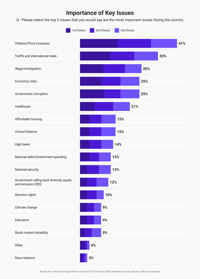(The Center Square) — Despite the U.S. Army Corps of Engineers supporting a scaled-down flood control lake near downtown Jackson, Mississippi, environmental groups and residents in Louisiana remain opposed to the project, saying it could result in environmental damage to coastal fisheries and wetlands.
The federal agency said at a public meeting last week in Slidell that the original plan isn’t cost-effective. The Corps said a new plan called Alternative D is similar but proposes a smaller One Lake near Jackson.
Andrew Whitehurst, a representative from Healthy Gulf, an environmental nonprofit group dedicated to preserving the Gulf’s natural resources, said the dredging near toxic waste sites might loosen some slurry and leachate down the river system.
Whitehurst also said the lives of multiple turtle and fish species whose habitats are in the Pearl River watershed would be endangered.
The Corps said that the new plan will have no effect on the rivers water levels below Monticello, Mississippi.
However, nearly two dozen Louisiana business owners and residents opposed the project during the hearing. The St. Tammany Parish Council also renewed its opposition to the plan with a resolution Thursday night.
“They were talking about how great it would be [to have] a state park in Jackson, Mississippi,” Parish Council member David Cougle said. “But we are in Slidell.”
The Rankin-Hinds Drainage District, an entity of the state of Mississippi created to prevent flooding in the two counties, supports the project, saying the lake would not only prevent flooding in Jackson, but provide an urban waterfront that would increase city revenues and provide recreational opportunities.
“It’s not being considered how this is going to negatively affect us,” Cougle added.
The Corps estimates that the project would reduce flood damages in Jackson by about $28 million annually.
Whitehurst believes part of the plan, the weir that will impound the Pearl River, is just there to make a recreational lake. The Corps also says this plan would require extra pumps and levee improvements, and would increase flood risk for 52 homes in Mississippi downstream of the lake.
The Corps uses a cost-benefit test to determine whether to move forward with a project. They discovered there would be economic boost to the area from “boat ramps, camping areas, fishing piers, trails, or wildlife viewing areas,” which would add about $5 million in calculated annual benefits to the project.
Though the Corps has framed “Alternative D” as the most likely plan, it is still considering two others. One involves home elevations, buyouts and new levees with no new lake, which would have the least effects on the lower Pearl River. The other proposes dredging the Pearl and adding levees near Jackson, but would also not involve creating a new lake.
Louisiana officials say they understand the need for both development and flood control. They’re urging the Corps to pursue a plan that won’t harm the lower Pearl.
“No one that lives in South Louisiana is going to begrudge them for wanting flood protection. We understand that as well as anybody else does,” Rep. Stephanie Berault, R-Slidell, said according to NOLA. “But you just don’t do it at the expense of its downstream effects.”



















































